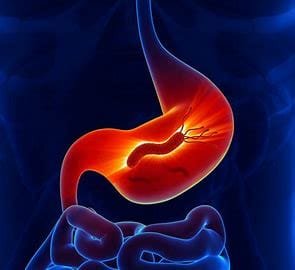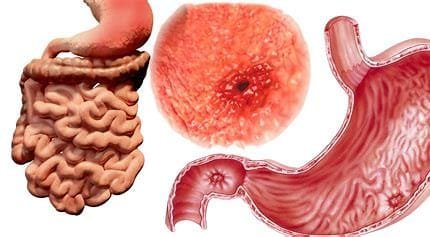
Ulcer disease is one of the worldwide diseases with infection in the lining stomach, small intestine, or even the esophagus. The characteristic feature of this disease is open sores—or lesions called ulcers. Open sores appear when the mucous that acts as a protective layer lining the digestive tract is broken and then dissolved by the acids in the stomach that lead to corrosive damage. While ulcers may occur anywhere in the gastrointestinal tract, they are most commonly found in the stomach (gastric ulcers) and the small intestine (duodenal ulcers). The article reviews the causes, disadvantages, and treatment of ulcer disease.
Causes of Ulcer Disease
There are several things that cause ulcers, but the most common causes are:
Helicobacter pylori Infection:
The most common cause of ulcers is the infection with Helicobacter pylori (H. pylori), a bacterium that colonizes the gastric mucosa. The organism destroys protective mucus, creating an inflammatory response that allows the stomach acid to digest tissue. Not all patients who are infected with H. pylori develop ulcers, but that said, the risk is sufficiently increased.
Nonsteroidal Anti-inflammatory Drugs (NSAIDs):
Another major cause of ulcers comes from inadequate protection by NSAIDs such as aspirin, ibuprofen, and naproxen, whose function is to suppress chemicals that otherwise help the stomach lining function. The mucosa might be left at the mercy of the damaging effects of gastric acid. Long-term or high dosage leads to ulcer formation.
Over-Production of Stomach Acid:
There are some conditions, such as Zollinger-Ellison syndrome, where the stomach acid is produced in excess. Overproduction of acid may cause ulceration through erosion on the protective lining that exists inside both the stomach and small intestine. Other factors that are believed to cause ulcers include stress and spicy foods. Although they often exacerbate the symptoms, they are not the causative agents.
Tobacco smoking and alcohol consumption
Smoking causes ulcers because it lowers blood flow to the stomach lining, which enhances its inability to heal. Alcohol irritates and erodes the stomach lining and enhances the chances of ulcers, especially in large amounts.
Disadvantages and Complications of Ulcer Disease
Ulcer disease may pose several complications if not treated on time. Some of these complications can turn fatal. Among these disadvantages and risks of ulcer diseases include:
Discomfort and Pain:
The cardinal characteristic of an ulcer is persistent burning or gnawing pain in the abdomen that can be exacerbated at night or between meals. Pain may vary in character and may be relieved briefly by eating or receiving antacids. Even severe chronic pain could affect the life of a sufferer at home and his/her quality of life.
Internal Bleeding:
Bleeding is the most serious complication of ulcer disease. It can happen because an ulcer may erode into blood vessels in the stomach or intestines and result in blood loss. The symptoms include blood in vomit or black, tarry stools. Large volumes of blood can cause anemia and may be manifested seriously and thereby require emergent medical evaluation.

Perforation:
At other times, the ulcer can perforate totally through the wall of the stomach or intestine. It then becomes a perforation and forms a hole into which stomach contents leak into the abdominal cavity, resulting in a severe infection known as peritonitis. A perforated ulcer is a medical emergency, and many times needs surgical intervention.
Obstruction:
Ulcers that are close to the pylorus, where stomach juices leave for the small intestine, cause swelling and scarring of the passage to the small intestine. This results in vomiting, bloating, and weight loss.
Risk of Other Stomach Cancers:
Infection with H. pylori increases the risk of stomach cancer. Long-standing inflammation from the bacteria leads to alterations of the lining of the stomach, which can eventually become cancerous.
Therapy for Ulcer Disease
Treatment for ulcer disease is aimed at the relief of symptoms, healing, and prevention of complications. Treatment depends on the cause of the ulcer.
H. pylori Antibiotic Therapy:
If the cause is identified as H. pylori, a course of antibiotics that eradicate the bacteria is prescribed. Common antibiotics that are prescribed include amoxicillin, clarithromycin, and metronidazole. The period usually associated with treatment can range from one to two weeks, during which the patient should continue taking the whole course of antibiotics to avoid the ulcer’s return.
Proton Pump Inhibitors (PPIs):
PPIs, in the group of drugs, are omeprazole, esomeprazole, and lansoprazole and reduce the secretion of acid by the stomach. In this case, the ulcers tend to heal since the acid levels are low and cannot continue damaging the tissue. Usually, PPIs are used together with antibiotics in treating ulcers caused by H. pylori.
Histamine-2 Receptor Antagonists (H2 Blockers):
They act by blocking histamine receptors in the stomach to decrease stomach acid production. H2 blockers are also useful in the treatment of ulcers and are another alternative for patients who can’t tolerate PPIs.
Antacids
Antacids, like calcium carbonate and magnesium hydroxide, which may be purchased over the counter, neutralize stomach acid, which quickly relieves ulcer pain. Although lifestyle changes often alleviate symptoms, they are not a cure for the cause of the ulcer itself.
Lifestyle changes are also very important in both the prevention and treatment of ulcers. The first change that one should develop is a habit of avoiding NSAIDs altogether, quitting smoking, and restraining oneself from excessive alcohol consumption. The other change that can be adopted to reduce the acid formation and therefore reduce the disturbance caused by the acid in the stomach is eating small, frequent meals.
Surgical Treatment:
Surgery is rarely required but may be necessary when the ulcer does not heal with medication, has bleeding, or is perforated. Surgical procedures involve the removal of the ulcer or cutting nerves that stimulate the production of acid in the stomach.
Conclusion
Ulcer disease is a manageable condition with proper diagnosis and treatment. The importance of knowing causes, risks, and existing treatment options to prevent complications for long-term health lies in understanding the facts about ulcers and overall health. Dealing with such underlying causes as H. pylori infection and NSAID use allows the alteration of necessary lifestyle changes and a huge decrease in the development risk of ulcers and all the disadvantages related to the condition.




